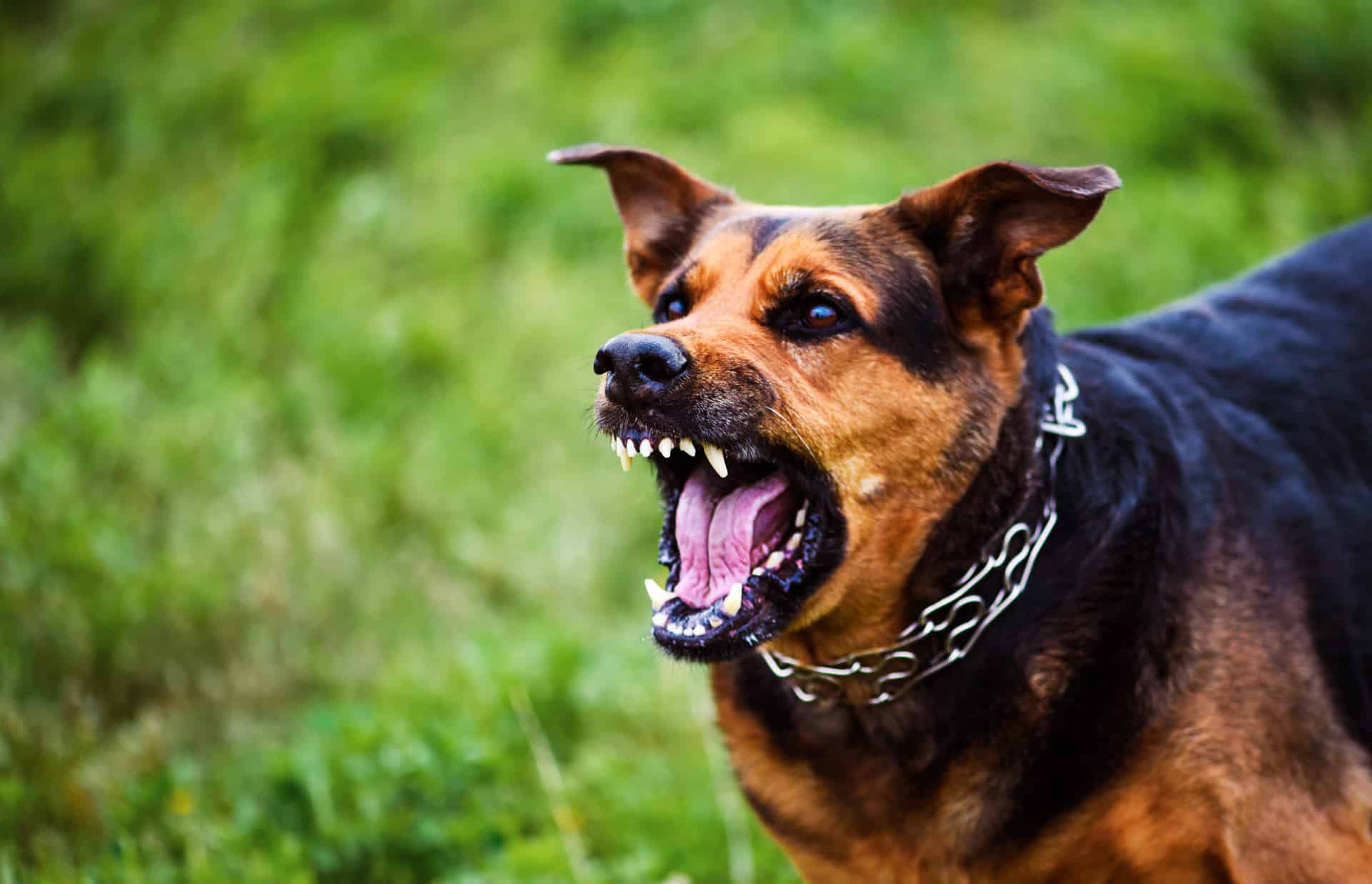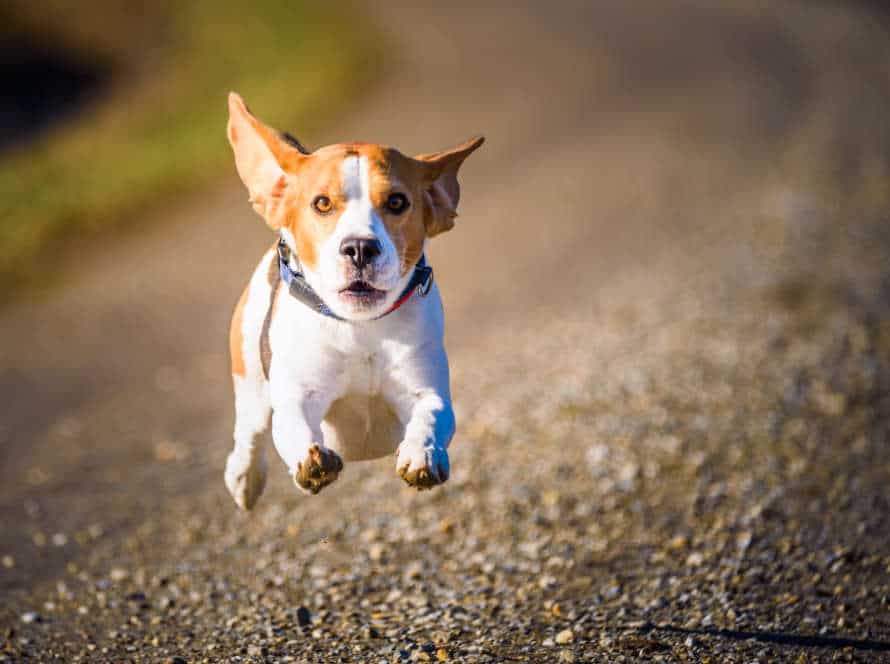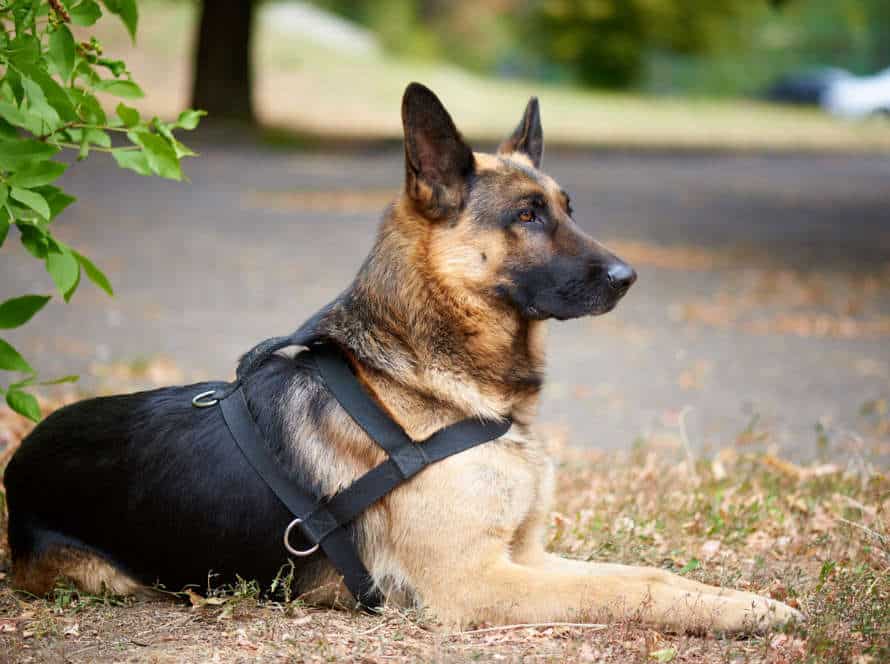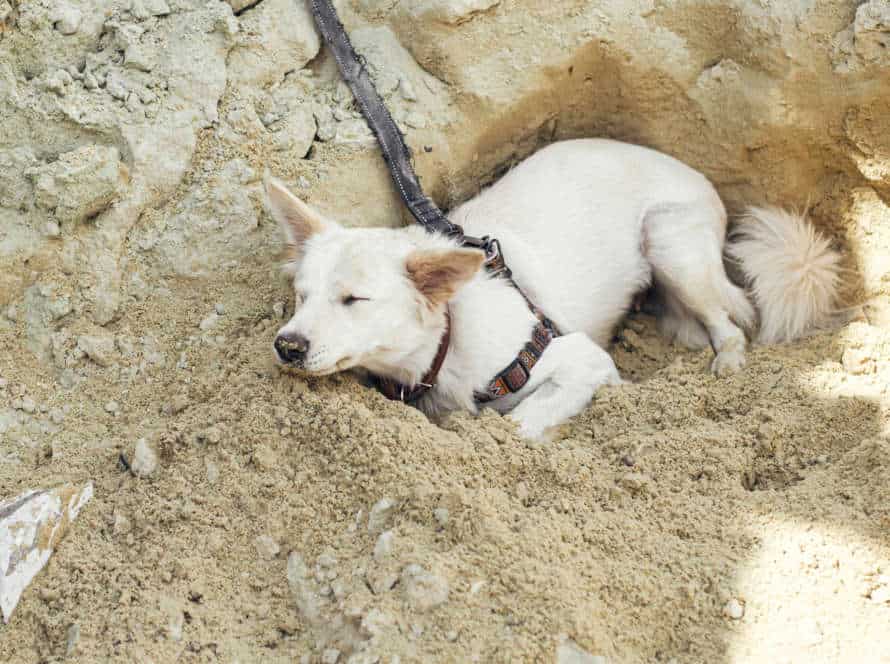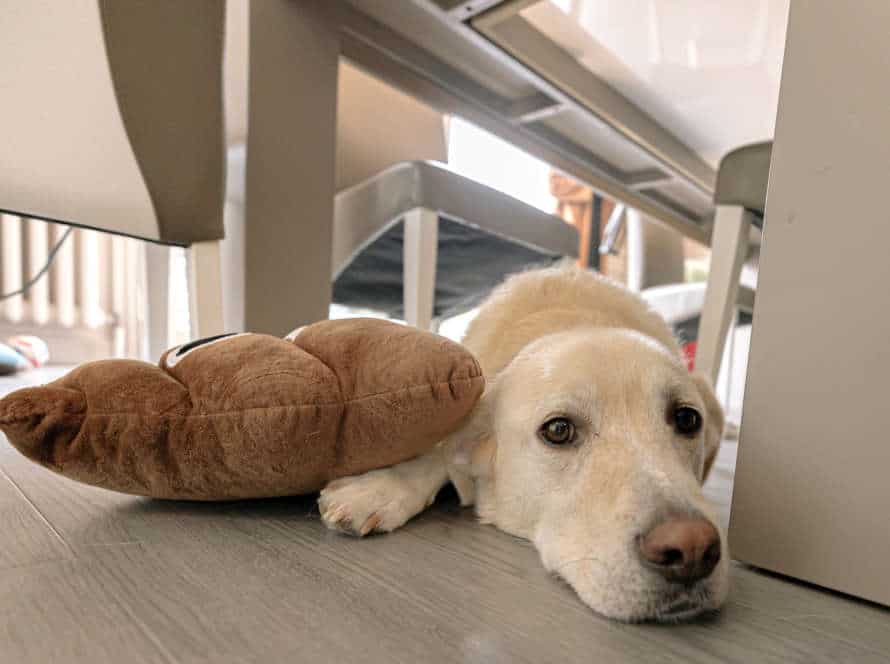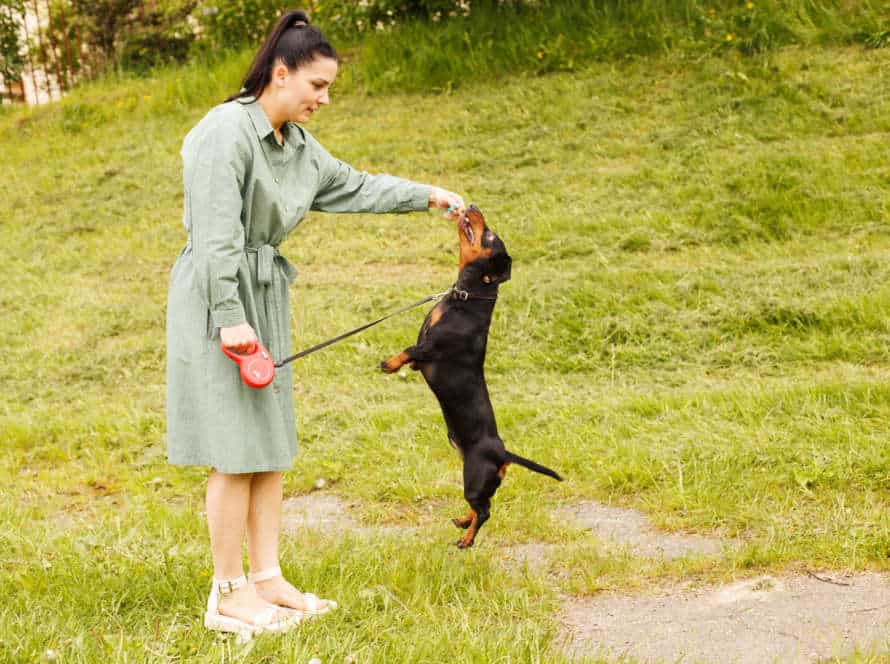Addressing Sudden Aggression in Previously Calm Dogs
Unexpected aggression from a formerly serene pooch can be a big shock. But, with the correct strategy, it is possible to deal with and control this behavior. Here are some tips to manage sudden aggression in previously calm dogs:
- Check if your pup has any medical issues that could cause pain or unease.
- Figure out if any circumstances make them feel scared or insecure.
- Ask for help from a specialist trainer or behaviorist for guidance and support.
- Give your dog enough exercise, intellectual stimulation, and positive reinforcement to reduce stress and tension.
Be aware that dealing with sudden aggression in previously calm dogs needs patience, consistency, and a desire to work with your pet to detect and resolve any fundamental problems.
Understanding the Causes of Sudden Aggression in Previously Calm Dogs
Shock, when a once docile pup suddenly turns aggressive! It’s not easy to know why. However, it’s important to recognize potential causes for this. This article will tell about some typical triggers and how to handle them.
Medical causes such as disease or pain
Sudden aggressiveness in previously-calm dogs could be due to medical issues such as disease or pain. These are some medical causes that may cause their aggression:
- Pain – Arthritis, dental problems or ear infections may cause sudden changes in behaviour.
- Hypothyroidism – Hormonal imbalance may be the source of their aggression.
- Brain Tumors – These can cause various changes in their behaviour, including sudden aggression.
- Infections – Rabies or distemper may lead to changes in behaviour.
If your previously-calm pup has suddenly become aggressive, it’s important to check for medical causes. Visit your vet for a thorough examination.
Environmental causes such as exposure to a new or stressful situation
Sudden aggression in once-calm canines may be triggered by environmental elements like exposure to a new or tense situation. Common stressors for dogs are: switching to a new home or atmosphere, loud noises, unknown people or animals, sudden changes in routine and physical ache or uneasiness.
If your pup is exhibiting sudden aggression, it’s important to determine the underlying cause and get expert aid if needed. Here are some tips to help you manage the issue:
- If it’s possible, take your dog away from the stressful environment.
- Chat with a vet to clear out any medical conditions that could be causing the hostility.
- Work with a certified dog trainer or behaviorist to create a behaviour adjustment plan for your dog.
- Be patient and regular with your training, and never use physical punishment to correct your pup’s behaviour.
- Remember that each dog is special, and it could take time and effort to address sudden aggression in your furry friend.
Behavioral causes such as past traumatic experiences
Aggression in formerly peaceful dogs can have different causes. Such as, traumas they went through in the past or other issues with behaviour. Dogs who suffered abuse, neglect or abandonment can be difficult to trust humans and can suddenly show aggression. Also, dogs not given proper socialization or training can become aggressive when presented with new people, animals or situations.
If your usually calm dog is now aggressive, it is important to act quickly. A professional dog trainer or behaviourist can be consulted to identify the basis for the aggression and make a plan for rehab. In some cases, medication may be necessary to control the aggression.
With patience, consistency and proper training, even dogs with past traumas can learn to trust and behave properly as family members.
Signs of Sudden Aggression in Previously Calm Dogs
Is your pup usually tranquil and obedient? But now showing signs of fury or aggression? Then be alert to the signs of sudden aggression in dogs. So you and your pooch are safe. In this section, we’ll discuss the common signs of aggression in formerly placid dogs, and how to manage the behavior.
Snapping or growling
Snapping and growling? That’s not good! If your once-calm pup is showing signs of aggression, take action. Here are some steps:
- Identify the trigger. What’s causing the aggression – noise, smell, certain person or animal?
- Practice positive reinforcement. Reward good behavior with treats and praise, but don’t punish them.
- Seek professional help. If you don’t know how to handle it, get help from a dog trainer or behaviorist.
- Remain calm. Don’t get physical or angry. Dogs can sense this, and it could make things worse.
- Remember, sudden aggression is not normal. Address it quickly!
Stiff body language
Stiff body language in dogs can be a sign of aggression. It’s important to know how to spot it and handle it safely. Some signs include:
- Erect ears
- Raised hackles
- Tense posture
- Tail held high or straight out
- Intense stare
If you spot any of these, de-escalate the situation. Avoid eye contact, keep a safe distance, and move away calmly and slowly. If the aggression continues, seek help from a vet or behaviorist.
Lunging or biting
Lunging and biting are signs of sudden aggression in usually docile dogs. This could be caused by fear, worry, pain, or illness. Here are tips for dealing with this:
- Find the trigger: Is it something, someone, or a situation? Try to avoid it until you can tackle the behavior.
- Vet visit: Maybe the aggression is a sign of an underlying medical condition. Get a vet to check it out.
- Professional help: Get help from an experienced dog trainer and behaviorist. They can identify the triggers, create a plan, and show you how to act.
Sudden aggression isn’t normal for dogs and must be taken seriously. To protect you and those around you, take steps to address it quickly.
Steps to Address Sudden Aggression in Previously Calm Dogs
Scary! Unexpected aggression in once relaxed dogs can shock the pup and its owner. It’s essential to take action right away. Here’s what to do:
Address sudden aggression in previously calm dogs. Read this article to learn the steps!
Rule out any medical causes
Rule out medical causes first when your previously calm dog shows sudden aggression. It can be due to underlying medical issues or injuries.
Schedule a vet appointment to check for any medical causes. During the physical exam, your vet may use diagnostic tests to find medical conditions causing the sudden aggression.
When medical issues are addressed, you can explore behavior training techniques and strategies to address the aggression.
Remember, sudden aggression in dogs is serious and requires immediate help from a vet or qualified dog behaviorist.
Reduce exposure to stressful situations
To address sudden aggression in previously calm dogs, reducing exposure to stressful situations is key. Here’s how:
- Identify triggers by observing behavior.
- Avoid or reduce triggers. E.g. if your dog gets aggressive around other dogs, avoid taking them to dog parks or busy areas.
- Train your dog with help from a professional. This teaches them to stay calm and respond appropriately in stressful situations.
- Create a safe and quiet space for your dog to go to when feeling stressed.
- Talk to a vet – aggression could be a sign of a health issue.
With patience and care, you can help your dog manage their aggression and lead a happy, stress-free life.
Consult with a professional dog trainer or behaviorist
If your formerly calm pup is suddenly displaying aggression, it’s a good idea to talk to an expert dog trainer or behaviorist. Professional trainers and behaviorists might recommend the following steps:
- Medical Check-Up: Rule out any medical issues, which may be causing the aggression.
- Behavior Evaluation: A behaviorist will assess the cause of the aggression and create a unique training plan.
- Obedience Training: Teach your pup to control their behavior and respond correctly to situations that used to cause aggression.
- Positive Reinforcement: Reward your pup for good behavior and discourage aggressive behavior.
Be aware that every pup is unique, so the best training plan for your pup’s situation should be discussed with a professional.
Preventing Future Episodes of Sudden Aggression in Previously Calm Dogs
It can be shocking to find our pet displaying aggression out of nowhere. As owners, we should understand why our pup is being aggressive. In this article, we’ll look into the reasons and steps to take to reduce the chance of it reoccurring.
Provide proper socialization and training early on
Socialization and training are essential for avoiding future outbursts of aggression in previously tranquil dogs. Socialization teaches a dog how to interact with other people and pooches in a constructive way, while training fosters trust and sets up guidelines and limits.
Here’s some advice for providing fitting socialization and training to your dog:
Socialization:
- Introduce your pup to novel people, spots, and stuff in an upbeat and managed way.
- Reward good conduct with positive reinforcement.
- Expose your pup gradually to varied circumstances, starting with low-stress situations.
Training:
- Utilize positive reinforcement techniques, such as treats, compliments, and playtime, to motivate good behavior.
- Steadily promote good habits and discourage bad ones.
- Construct clear rules and boundaries for your pet.
Remember, every dog is distinct and some may need more socialization and training than others. Don’t be afraid to seek the aid of a skilled trainer or behaviorist if your pooch is exhibiting signs of sudden aggression.
Use positive reinforcement techniques for good behavior
Positive reinforcement is a great way to prevent sudden aggression in calm dogs. It uses rewards and praise instead of punishment. Here are some tips:
- Treats – give your pup their favorite snack when they do well.
- Praise – use a happy voice to show your pooch that you’re proud.
- Playtime – use playtime as a reward or to release energy so they don’t get bored.
Consistent use of these techniques can help your dog create good habits and avoid future aggression.
Monitor for any changes in behavior and address them promptly.
It’s essential to watch your pup’s behavior for any sudden changes. Doing so right away can stop future episodes of fierce rage in formerly quiet dogs. Some usual triggers for sudden aggression in dogs are fear, anxiety, sickness, and territorial behavior.
Here are some tips to avert future episodes of sudden aggression:
- Maintain your pooch on a consistent pattern.
- Socialize your pup from an early age to avoid fear and anxiousness.
- Give lots of exercise and mental stimulation to keep your pup physically and mentally healthy.
- Invest in pro training to address any hidden behavioral problems.
If you note any changes in your pup’s behavior, such as aggression or anxiety, get pro help immediately. Addressing these issues quickly can stop future episodes of sudden aggression and have a secure and cheerful household for both you and your furry pal.
Frequently Asked Questions
1. Why is my previously calm dog suddenly showing signs of aggression?
There can be many reasons why a dog who was once calm may start showing signs of aggression. Some common causes include pain or illness, fear or anxiety, lack of socialization, and changes in the dog’s environment or routine.
2. Should I punish my dog for sudden aggression?
No, punishing your dog for sudden aggression can actually make the behavior worse. Instead, focus on addressing the underlying cause of the aggression and training your dog to respond differently in those situations.
3. Is it possible to rehabilitate a dog who is suddenly aggressive?
Yes, many dogs can be successfully rehabilitated with the right training, environmental changes, and medical care if necessary. It’s important to work with a professional trainer or behaviorist who can help you develop a plan that fits your dog’s specific needs.
4. Can sudden aggression in dogs be a sign of a more serious underlying issue?
Yes, sudden aggression in dogs can sometimes be a sign of a medical or behavioral issue that requires professional attention. It’s important to have your dog evaluated by a veterinarian or veterinary behaviorist to rule out any underlying health problems or conditions.
5. Should I consider rehoming my dog if they show sudden aggression?
Rehoming a dog should be a last resort, and only considered if all other options have been exhausted. With proper training and management, many dogs can overcome sudden aggression and learn to live happily and safely with their families.
6. How can I prevent sudden aggression in my dog?
Preventing sudden aggression in dogs involves providing proper socialization and training, seeking medical care when needed, and ensuring that your dog feels safe and comfortable in their environment. Consistent and positive reinforcement training can also help prevent many behavioral issues before they become a problem.

